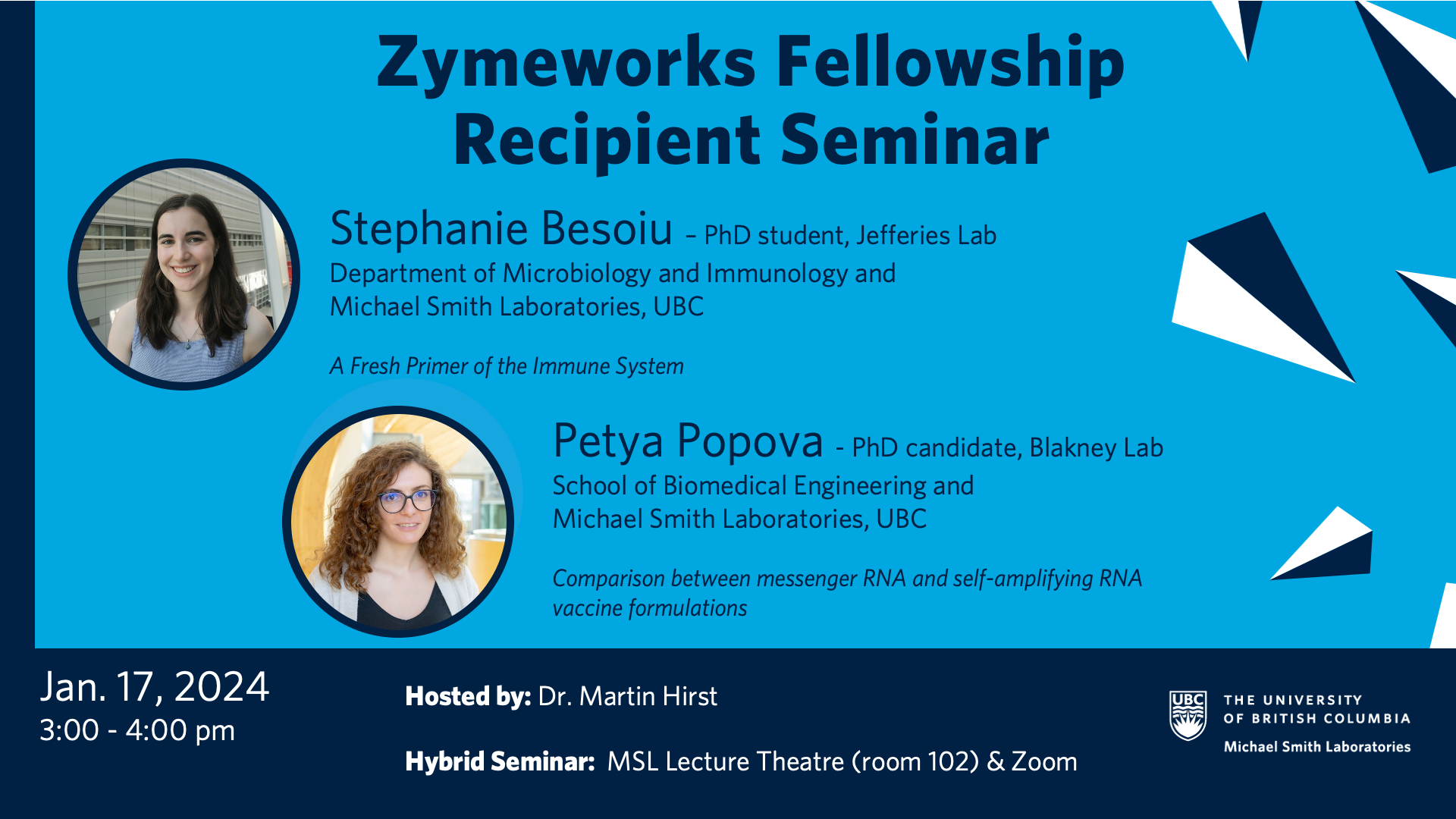
- This event has passed.
MSL Seminar Series: Zymeworks Fellowship Talks
January 17, 2024 @ 3:00 pm - 4:00 pm

UPDATE JANUARY 17: Moved to Zoom only due to weather
Host: Dr. Martin Hirst
This seminar will be presented in a hybrid format. All speakers will be delivering talks in person at the MSL Lecture Theatre (room 102). Audience members are welcome to attend either in person or via the zoom link. Those connecting via zoom will be able to ask questions during the Q&A portion using the chat function.
Zoom registration link:
https://ubc.zoom.us/meeting/register/u5cpd-GvqzwvGteXp-ZVpKPIydk5HNfY-VNu
Guests from Zymeworks Inc. will be joining us to say a few words and to present the new 2023/24 Zymeworks – Michael Smith Laboratories – Department of Microbiology and Immunology Fellowships in Advanced Protein Therapeutics recipients with their awards.
Speakers:
Stephanie Besoiu: PhD Student, Jefferies Lab – Department of Microbiology & Immunology and Michael Smith Laboratories, UBC
Talk Title: A Fresh Primer of the Immune System
Abstract:
A critical component of both vaccine and cancer immune responses is activating T lymphocytes, particularly CD8+ T cytotoxic lymphocytes. CD8+ T cells eliminate infected cells by recognizing antigens on MHC class I molecules, triggering an immune response against infected or abnormal host cells, leading to their destruction. Dendritic cells are unique gatekeepers in acting as antigen-presenting cells(APCs) to initiate the activation of T cells for both primary and secondary immune responses. Conventionally, dendritic cells process and present antigen onto an MHC I molecule on the cell surface to prime CD8+ T cells against a specific peptide in a process called cross presentation, critical for anti-tumour immune responses. However, we have found a new lymphocyte subtype that may also possess the capability to act as APCs to initiative primary immune responses, a paradigm shift in our understanding cell-mediated immunity. Therefore, this project aims to elucidate the genes involved cross-priming to increase the predictability of vaccine and cancer immune responses and identify new immunotherapeutic targets.
Petya Popova: PhD Candidate, Blakney Lab – School of Biomedical Engineering and Michael Smith Laboratories, UBC
Talk Title: Comparison between messenger RNA and self-amplifying RNA vaccine formulations
Abstract:
The approval of messenger RNA (mRNA) and self-amplifying RNA (saRNA) vaccines against SARS-CoV-2 has been a breakthrough in therapeutic development. saRNA is a type of mRNA that is derived from alphaviral genomes, which has shown promise for inducing longer-lasting antigen expression and a stronger immune response compared to mRNA vaccines. The antigen design, optimization of the in vitro transcription process used to produce the RNA, and the delivery platform are key for achieving the full potential of saRNA technology in future vaccine development.